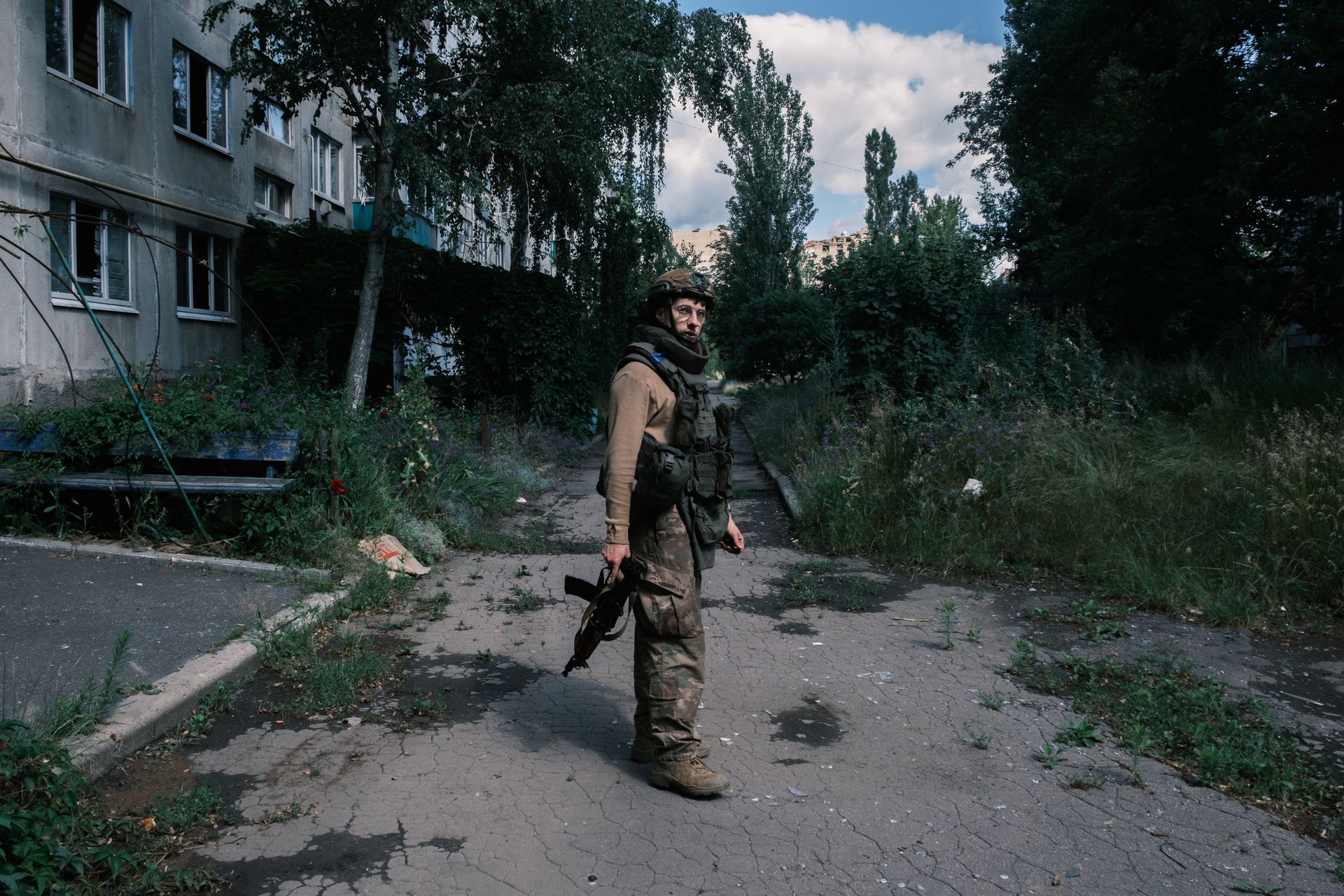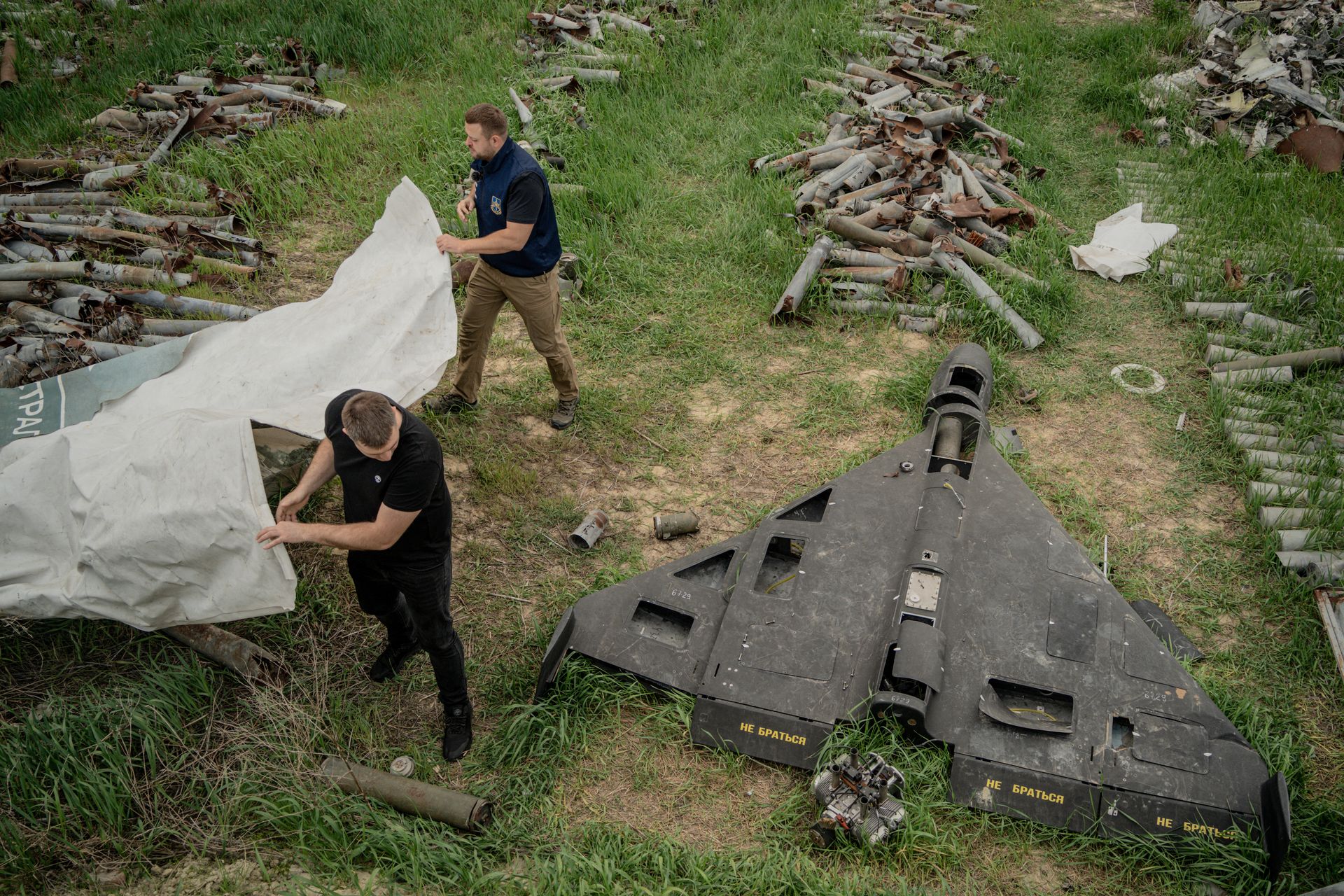Russia may have received up to 30,000 fresh North Korean troops, boosting its negotiating position

North Korea's leader Kim Jong Un (L) walks with Russian President Vladimir Putin during a welcoming ceremony upon Putin's arrival in Pyongyang, early on June 19, 2024 (Gavriil Grigorov/Pool/AFP)
North Korean troops had fought alongside Russia since late 2024. They saw combat in Russia's Kursk Oblast but didn't cross into Ukraine.
That might soon change. Ukrainian officials assess that North Korea has additionally deployed 20,000 to 30,000 troops to Russia, though the number could be lower, a senior Western diplomat told the Kyiv Independent, citing Ukrainian intelligence.
As Washington attempts to push Kyiv and Moscow into peace talks, Russia likely seeks to "project strength" by involving a wider coalition to fight alongside its troops in Ukraine, John Erath, senior policy director for the Center for Arms Control and Non-Proliferation, overseeing authoritarian states, including Russia and North Korea.
Russia may also want to use the time before the upcoming deadline set by U.S. President Donald Trump to increase its offensives across the front.
Deploying an increasing number of North Korean soldiers on the front lines is the logical first step, according to experts following Moscow-Pyongyang relations.
The timing of the news about the North Korean troops is particularly interesting, according to Erath.
"Again, I think the Russians wanted to present as strong a position as possible," Erath told the Kyiv Independent.
Jenny Mathers, a Russian political expert and lecturer at the U.K.'s Aberystwyth University, said that even though it is certainly beneficial to convey a strong message externally, the driving factor is likely "an internal timetable" on Moscow's needs.
"I think there's probably an internal dynamic that's more important than trying to just send signals to third-party countries because, really, Russia needs the troops on the ground," Mathers told the Kyiv Independent.


A large number of North Korean soldiers began to fight alongside the Russian army in December 2024 to expel Ukrainian forces from Russia's Kursk Oblast. While they initially faced challenges with adapting to modern drone warfare, Ukrainian soldiers say they quickly learned from their mistakes and proved to be determined fighters.
"Russia is trying to send a message not only to Trump, but also to all European partners that the war will continue to be a war of attrition."
Coordinating with Russian units appeared difficult, however, possibly due to language barriers, a senior Ukrainian official speaking on condition of anonymity told the Kyiv Independent.
Russia confirmed employing North Korean troops only in April, following their victory in Kursk.
Of the roughly 12,000 North Korean troops estimated to have been deployed in the fall of 2024, President Volodymyr Zelensky said that about 4,000 North Korean troops appeared to have taken casualties. South Korean intelligence reported that North Korea is estimated to have suffered about 4,700 casualties, including 600 deaths.
Mathers believes that the initial deployment "at a relatively low level" was done to test the water, and it would likely be logical to keep ramping up the numbers.
Serhiy Hrabskyi, a retired Ukrainian colonel and military analyst, warned that the North Korean troops who fought on the ground and survived may have passed on valuable battlefield experience to soldiers back home.
The new round of speculations that North Korea will send its troops to the front goes hand-in-hand with the "disaster level" of casualties among the Russian infantry, according to Ruslan Gorbenko, a lawmaker from the ruling Servant of the People who regularly travels to the war-torn east and keeps in touch with the military.
But Gorbenko agrees that Russia is likely using North Korean troops to send the world a message.
"Russia is trying to send a message not only to Trump, but also to all European partners that the war will continue to be a war of attrition," Gorbenko told the Kyiv Independent, implying that Moscow is gearing up for a long fight.

North Korea is also benefiting from such a partnership, gaining battle experience and likely missile technology. The senior Western diplomat who spoke to the Kyiv Independent on the condition of anonymity said Russia could pass on captured Western equipment to gain more knowledge of technology, but it's unclear whether a transfer had already taken place.
Patrick Cronin, the Asia-Pacific security chair at Hudson Institute, analyzing U.S. national security and North Korea, said that the Pyongyang-Moscow relationship allows them to mask "their own weaknesses, problems, and distrust of one another."
For Russia, it may be Russia's fear of losing power to China and gaining influence over a country once known to be fully dependent on Beijing, while North Korea may be gaining modern technology and widening its alliance base ahead of a potential confrontation with South Korea and Japan.
Cronin explained that Russia can use it to psychologically pressure the West to comply with Russian demands, as it can "eventually negotiate away without actually backing off its own war."
"So there's clearly a close orchestration of Russian policy to think about how to play the North Korean card vis-a-vis the United States and vis-a-vis Trump," Cronin told the Kyiv Independent.











